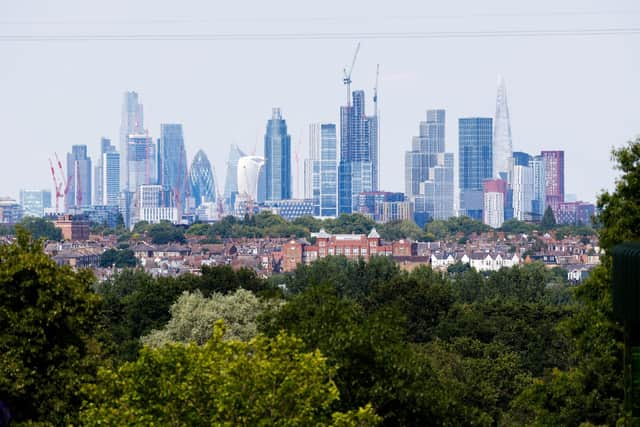Wealthy Russians 'choosing not to invest corrupt funds in UK' after crackdown
A specialist unit, known as the Combatting Kleptocracy Cell, was set up following the Salisbury poisoning in 2018 to target wealthy criminals, with close ties to the Kremlin, operating in the UK.
According to the National Crime Agency (NCA), the covert unit was granted additional resources and given the “green light” to go after companies and individuals who help these criminals launder money and evade economic sanctions, following Russia’s invasion of Ukraine.
Advertisement
Hide AdAdvertisement
Hide AdMany had chosen to hide valuable assets in London – nicknamed Londongrad because it had become a haven for their dirty money over recent years – but the NCA said it is working to disrupt their activities.


The unit has arrested more than 10 of the “enablers”, since Russia invaded Ukraine, and around £12.5bn of assets have been frozen so far by the authorities.
“We are obviously very hopeful of putting in place a number of prosecutions in the coming year,” an NCA source said.
“There's a number of enabling services that corrupt elites like to use in respect of London.
Advertisement
Hide AdAdvertisement
Hide Ad“Whether that’s auction houses, whether that's estate agents, whether that's lawyers, or whether that's particular security companies – there's a whole raft of things out there that that corrupt elites target and use for their own purposes of hiding and moving their money.
He added: “Our intelligence also shows us that some individuals are choosing not to invest corrupt funds in the UK and this is about starting to push back on this concept of Londongrad.”
The NCA said it has also been working with police forces in other countries, to help them detain, seize and freeze valuable assets, such as planes and yachts, and working alongside authorities in the likes of Jersey and the British Virgin Islands, to crackdown on criminals who transfer ill-gotten gains to offshore accounts.
It comes after the Commons Foreign Affairs Committee last month accused the Government of complacency in allowing Russian “dirty money” to flow into the UK despite the war in Ukraine.
Advertisement
Hide AdAdvertisement
Hide AdIt said the failure of ministers to take effective action meant assets “laundered” through the City of London were being used to finance President Vladimir Putin’s invasion.
The Combatting Kleptocracy Cell is expanding, after being granted additional funding, but the NCA refuses to reveal details about its resources.
The law enforcement agency has also welcomed new legislation, which will make it easier for them to disrupt the activities of these wealthy criminals, who have previously used shell companies and other complicated legal structures to hide their identities.
The Economic Crime (Transparency and Enforcement) Act 2022, fast tracked through Parliament after the invasion of Ukraine, forces foreign owners of UK companies to declare and verify their identities, by creating a Register of Overseas Entities, and anyone who fails to do so can be jailed for up to five years.
Advertisement
Hide AdAdvertisement
Hide AdIt also makes it easier for the authorities to use unexplained wealth orders to confiscate criminal assets and go after people believed to have breached sanctions.
The Government has also published a white paper on plans to give Companies House new powers to verify the identity of people setting up and running companies.
